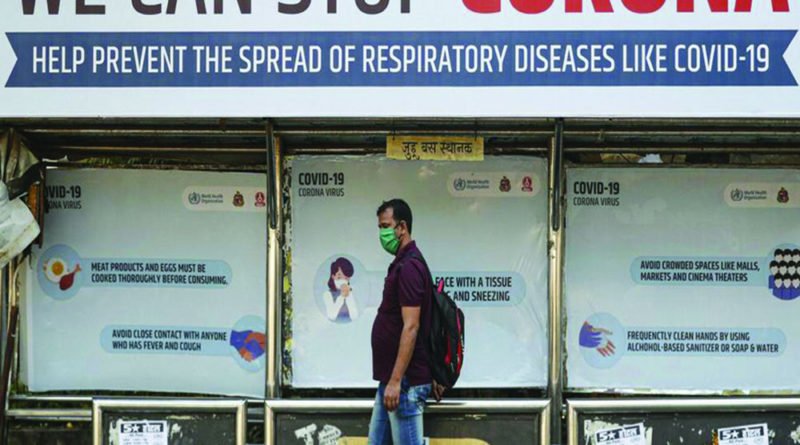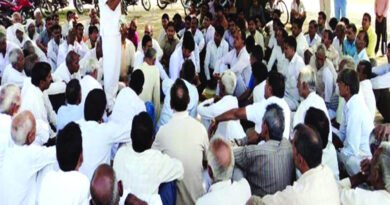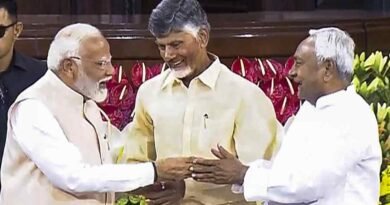Force majeure
While the Modi Government deserves wholehearted support in tackling COVID, a few correctives should be in place. Wholehearted and not unthinking support is the need of the hour
We live in strange and unnerving times. India and the world are currently in the midst of a raging battle against a common enemy — Coronavirus. The total number of cases in India at the time of writing stood at 686 and the number of deaths at 13. Both these numbers, unfortunately, are expected to rise over the weeks that will follow. Numbers across the world are staggering. The death toll in Italy and Spain have reached in the thousands, eclipsing that of China’s.
The most worrisome aspect of the virus is not the fatality associated with it — though for the elderly and those without adequate medical care this figure is frighteningly high — but its speed of transmission. The virus took just 67 days to reach the first one lash and in the next 15 days, it infected the next two lash people across the world. The modern world has rarely witnessed an enemy about whom we know so little and which moves relentlessly and ruthlessly. Though this does not require saying, yet: We cannot beat the virus unless we pull in the same direction. This is not the time to squabble as there will possibly never be a more unifying enemy in our lifetime.
In the light of this very different world that you and I have woken up to, it is important to support and recognize the efforts of the Indian Government, healthcare professionals and workers, the media, policemen and all other individuals who have put themselves in the line of fire. The Prime Minister has our full support in tackling the virus. While his decision to impose a nationwide lockdown may seem to be a bit too harsh, we must keep in mind that the Government has our best interests in mind. The Finance Minister has also been announcing several relief measures for the poor and the marginalised. I cannot commend this move enough. With the economy, especially small businesses, in shock, I hope this is the first step in dealing with this unprecedented crisis.
During this time, we must also be grateful to the country’s federal structure, several Chief Ministers, most notably Arvind Kejriwal and Pinarayi Vijayan, who have truly shown their leadership capabilities at an hour when this quality is necessary and found wanting at times. While I endorse and support the measures taken by the Government to tackle the unique beast of COVID-19, I, as an Indian, would also like to put forward a few suggestions and perspectives that I believe, can aid our fight against this dreadful disease and, hopefully, see us emerge victorious at the end of this long battle. I hope that the many trollers, who often attack any piece of writing by looking at the writer rather than the content, see this article in that spirit. Stranger things are happening in times of Corona.
The need for a down-up approach: While the lockdown is necessary to contain the virus, it is important to ensure that the cure has (i) the desired effect, ie, it prevents people from congregating together in large groups and (ii) does not provide greater pain to the very sections of society it seeks to protect than the disease itself. The Prime Minister’s speech while commendable in many ways was found significantly wanting on this count.
By giving just a few hours’ time for the 21-day lockdown to kick in and that, too, without adequate disclosures/detailing regarding the provision for essential services, the Prime Minister caused widespread panic across the country. There were massive crowds that assembled around grocery stores and chemists, fearing the worst. The impact of this crowding will only be seen later but it was distinctly avoidable.
The Prime Minister, for example, could have taken a note from the Delhi Government, which had itself called for a lockdown two days prior to his announcement. The Delhi Government has been more stringent than the Union Government pertaining to certain measures. The only difference has been the approach followed by both. The former has rather been more down-up than top-down in its tactics. This system has been successfully implemented by various firms as well, where employees and workers at the ground level have been able to provide accurate feedback on what measures work while dealing with the customers.
In the case of Governments, the customer is the vast population of this great country. Therefore, as is becoming more obvious day by day, a top-down approach does not work. Instead, we need a clear line of communication between the Prime Minister and the public. This includes taking a press conference where the media, which has been and will be crucial in highlighting the shortcomings of the Government’s measures, can highlight questions that the public, too, have been raising. Such press conferences can be done effectively through social media platforms like Facebook live events with limited access to accredited journalists. However, to limit this only to the Prime Minister would be a big mistake. Chief Ministers, too, need to follow a similar approach. This is why Delhi Chief Minster Kejriwal must be applauded for being proactive in this regard.
Similarly, there are widespread reports of police officers in a number of States disrupting the supply of essential services by lashing their lathis on workers, trying to reach their place of work or transporting essential services. E-tailers allege that up to 15,000 litres of milk and 10,000 kg of vegetables were dumped due to police action. This must be stopped at the earliest. Certain Police Commissioners have held discussions with e-commerce service providers and come to the conclusion that they would pass instructions to their officers. However, this step must be taken a little further. Officers must hold Facebook live discussions where citizens can highlight areas where they are facing discomfort or harassment. I do not blame the policemen entirely on this count as till now, they have only been given broad guidelines to ensure no movement on the roads. The requirement at this stage is one of nuance, which cannot come from a top-down approach towards governance.
An active bureaucracy: Another step which I think can help is to involve the bureaucracy. I have held many discussions with bureaucrats, and they feel they can contribute in alleviating the issues faced by the public while also maintaining social distancing and following all lockdown norms. One clear area where this can help is with respect to daily-wage and migrant workers. As a result of the lockdown, daily-wage and migrant workers have been left to fend for themselves. The sudden decision to stop all trains and buses from inter-State travel has left lakhs and lakhs of workers in the middle of nowhere or without a roof over their heads. There are numerous stories of workers and children walking hundreds of kilometres to reach their villages.
While a large number of readers will have the luxury of dealing with the panic and pain caused due to the outbreak of Coronavirus with their families by their side, this essential support system is not within the reach for these migrant workers. On this count, I plead that the Government takes steps while acting within the lockdown protocol, to ensure that these workers can be transported to their home States in buses with strict social distancing norms and sanitation practices in place. The bureaucracy can help implement these steps. It is in times like these that the bureaucracy can and must come to the fore, even if they do so in regulated numbers. By allowing a large number of them to sit at home, we are being deprived of this valuable resource.
Of course, it is easier to speak than it is to write and easier to write than to practise but just like every Indian, I want the country to come out of this crisis as a shining example to the world. While I support the Modi Government wholeheartedly in its efforts to tackle the virus, wholeheartedly does not mean unthinkingly. In order to beat the Coronavirus, wholehearted and not unthinking support is the need of the hour.
(The writer is a former IPS officer, a former MP and currently a member of the AAP)
The Pioneer




